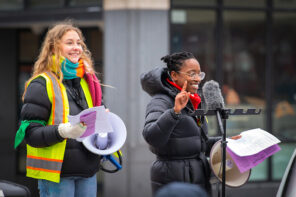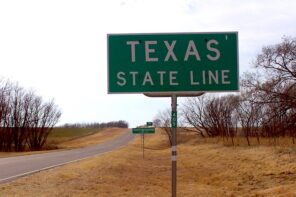Is religion special? In its recent decision on Hosanna-Tabor Evangelical Lutheran Church and School v. E.E.O.C., the Supreme Court indicates that it is. That may be the one thing that they got right in this case.
The U.S. has on the books a number of valuable laws against discrimination in the workplace, and all organizations (businesses, nonprofits, schools, governments) are expected to abide by these laws. Except religions, or so it now seems. According to the Tabor ruling, religious groups get a pass on the law when it comes to employees who are considered “ministerial.” The right to the free exercise of religion, says the court, entails a right to hire and fire those who lead a religious group without government interference. Because the court refuses to define just who may count as “ministerial”—and the case in fact involves a schoolteacher who taught mostly secular subjects—the decision effectively grants religious groups a degree of power over their employees that no other group can claim.
There is much that is troubling in the Hosanna-Tabor decision. The balance between the right to free exercise of religion and the right of employees to equal protection under the law is not easy to strike, and this decision doesn’t appear to strike it at all. By failing to specify to whom and in what circumstances the “ministerial exception” applies, the decision seems to open the door to its misuse. But let’s set such quibbles aside. Somewhere at the bottom of the Court’s reasoning lies the hard ground of an important truth about the American system.
Under our Constitution, religion is something special, something that is and ought to be treated differently from every other kind of activity. I bring this up because some of the recent jurisprudence on church/state issues is based on the very opposite view: that religion is just like everything else.
In the 2001 Good News Club v. Milford Central School decision, for example, the Court decided that once a public school has opened up its facilities for use by pretty much any outside group, it cannot exclude services of worship merely because they are religious in nature. In his majority opinion, Justice Clarence Thomas argued that “it is quixotic to attempt a distinction between religious viewpoints and religious subject matter.” And since everything has a “viewpoint,” he inferred, religion is the same as everything else. Indeed, he could see “no logical difference in kind” between a religious group—such as The Good News Club, an after-school program of religious instruction for children that spends much of its time praying, singing hymns, and learning the evangelical gospel—and a soccer team.
The same logic was applied in a set of rulings that, at least for a time, required that New York City schools opened to the community after-hours should make themselves available as rent-free houses of worship. If you treat religious worship as something different than, say, student theater workshops and local running clubs, the reasoning went, then you are discriminating against religion.
The same line of thought informs the world of government-funded, faith-based social services. There is no difference between a secular nonprofit drug rehabilitation service and a faith-based one, right? Except that, as per the Hosanna-Tabor ruling, the religious one now has the right to discriminate against its own employees.
So which is it? Is religion something special? Or is it like every other activity? So far as America’s founders were concerned, religion certainly is special. This is why the First Amendment grants us both the right to free speech and the right to the free exercise of religion—because speech and religion are not the same thing.
I think the Founders were right. The basic principle that the free exercise of religion requires that government should refrain as much as possible from getting involved in ecclesiastical decisions is surely sound. For the same reason, on the other hand, we must stop pretending that religious groups should be treated the same as all other groups on matters that have nothing to do with religion.
To treat religion differently—to say that organized worship services, or the religious instruction of children, belong in some places, like churches, but not others, like public schools—is not to discriminate against religion. It is to honor the spirit, as well as the letter, of the Constitution.




